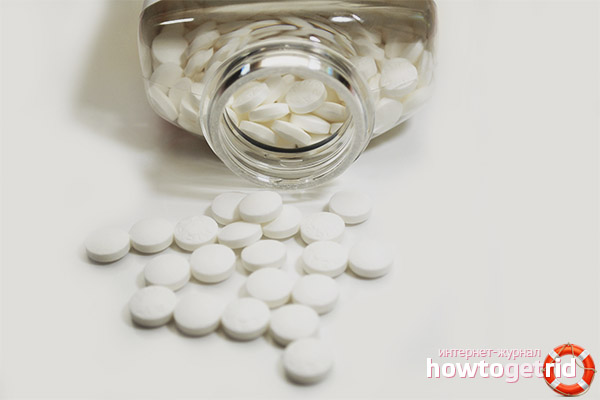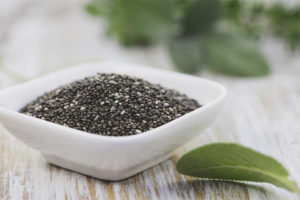The content of the article
- 1 How does aspirin work?
- 2 Drug properties
- 3 Indications for use aspirin
- 4 The correct dosage of acetylsalicylic acid for the patient
- 5 Contraindications that aspirin has
- 6 Aspirin Harm
- 7 "Aspirin Cardio" during pregnancy
- 8 Aspirin and Alcohol
- 9 Good or bad - what wins?
- 10 Video: the benefits and harm of aspirin
Acetylsalicylic acid or as everyone used to hear the name of this drug - aspirin, was developed by Felix Hoffman in 1897. The well-known name "Aspirin" received the drug due to the name of the plant in Latin, from which at one time the scientists isolated salicylic acid - Spiraea ulmaria. To the first letters of the name “spir” they put “a” in order to emphasize the role of the acetylation reaction, and “in” at the end was added to a greater degree for good sound. And so it turned out easy and consonant name - Aspirin. At the very beginning, when only aspirin was opened, it was made from willow bark. Nowadays, this medicine is produced by chemical means.Until the 20th century, aspirin was considered an exclusively antipyretic, but later doctors and scientists began to discover other properties of this miraculous drug.
For years, acetylsalicylic acid has been considered an absolutely safe medicine, but to date, the opinions of doctors on this issue are divided. What is harmful and useful aspirin? What groups of patients is it contraindicated? Can they get poisoned? We will answer these and other questions in this article.
How does aspirin work?
Today, aspirin does not have such properties and qualities that would not have been studied. For decades, tremendous experience has been gained in medicine regarding the action of this drug. Aspirin has long occupied its niche and is among the indispensable drugs, both in the Russian Federation and abroad.
What can explain the incredible popularity of acetylsalicylic acid? The secret is simple, this drug contains a minimal amount of side effects and at the same time copes with such illnesses as - fever, pain, inflammation, rheumatism and so on.Aspirin is in the group of nonsteroidal anti-inflammatory drugs. It reduces the synthesis of thromboxanes, but unlike other drugs of the same group, this process is irreversible when using aspirin.
Drug properties
- The key property of aspirin is antipyretic. This process occurs because, thanks to acetylsalicylic acid, the vessels of the brain expand and, thus, sweating increases, and this, as everyone knows, leads to a decrease in the temperature of the human body.
- The effect of anesthesia is achieved by the effect of acid on the central nervous system of a person, as well as through direct effects on the area of inflammation.
- Antiplatelet effect on the cells of the human body. Aspirin promotes blood thinning, and thereby prevents the formation of blood clots in the patient's body.
- Anti-inflammatory effect. This effect is achieved by reducing the permeability of small vessels in the area where the inflammatory process occurs.
In the Russian Federation, aspirin is produced mainly in tablets; in Europe - in powders and (or) candles.Also, acetylsalicylic acid is often used as the basis for not less well-known drugs.
Indications for use aspirin
Acetylsalicylic acid should be used when you have:
- high fever, as a result, infectious or inflammatory diseases;
- there are some pain;
- for the prevention of heart attack;
- in order to prevent the appearance of blood clots in the body;
- rheumatism.
Important! Drug for long-term use must appoint a doctor!
The correct dosage of acetylsalicylic acid for the patient
If you are planning a long-term use of this drug, you must first consult with your doctor, since the dosage is chosen individually because of the huge range of therapeutic action of the drug.
Adults are prescribed a dosage of 40 milligrams and up to 1 gram per dose. During the day, the maximum dosage can reach 8 grams. It is necessary to take the drug from two to six times a day, after meals.The tablets must be crushed to a powder and filled with an impressive amount of water, doctors also recommend using milk for this purpose. With prolonged treatment in order to reduce its negative effect on the stomach, doctors recommend drinking aspirin with mineral water.
In the event that the drug is taken without a prescription and medical supervision, then the course should in no case be more than seven days, if the drug is taken as an anesthetic, and the period should be no more than three days, if it is taken as antipyretic a drug.
Contraindications that aspirin has
Does aspirin harm our body? As with any other medicine, aspirin has a number of specific contraindications. Let's analyze them in detail:
- stomach ulcers (intestines);
- bleeding;
- previously manifested allergic reactions to this component;
- the number of platelets in the blood is below normal;
- lack of vitamin K in the body;
- impaired blood clotting or in other words hemophilia;
- pregnancy;
- lactation period;
- liver or kidney failure;
- portal hypertension;
- not recommended before surgery.
With special attention and caution, the medicine must be taken by people who are susceptible to gout, that is, the accumulation of urine in the body. This is due to the fact that even in minimal amounts, acetylsalicylic acid strongly prevents the removal of substances from the body, which in turn will trigger an attack of gout.
Aspirin Harm
Cases in which acetylsalicylic acid causes significant harm to the human body is the wrong dosage or as a result of interaction with incompatible drugs. Let's look at how negative acetylsalicylic acid can affect the human body.
- Aspirin adversely affects the stomach in case of prolonged use of the drug.
- Acetylsalicylic acid reduces blood clotting and in some cases leads to severe bleeding. It can also have a detrimental effect on the body during surgical operations, or in an abundant period of the menstrual cycle.
- Aspirin has a very negative effect on the developing fetus and can cause a violation of embryonic development (a high probability of developing pathologies), therefore it is prohibited for women to use it in the position.
- It causes Reye's syndrome. It manifests itself in children no older than 12-15 years, in the event that the remedy was taken during the period in which a child has such diseases as measles, smallpox or influenza. Reye's syndrome is manifested through the appearance of hepatic encephalopathy, that is, a disease that destroys the cells of the liver and brain. This cider was first disclosed and described in the United States of America.
"Aspirin Cardio" during pregnancy
It happens that doctors prescribe acetylsalicylic acid to women during pregnancy. A separate type of aspirin, the drug Aspirin Cardio, is usually prescribed. This drug is different from the usual aspirin in that it is coated with a shell that does not allow the drug to dissolve in the stomach, but is dissolved and absorbed only in the intestine. Doctors prescribe this tool to pregnant women to reduce the clotting of their blood, as well as to prevent cardiovascular diseases.
Aspirin and Alcohol
It is worth remembering that the combination of aspirin with alcohol is strictly prohibited. This combination can easily lead to intestinal bleeding. But after that, with a hangover, aspirin is recommended to be taken as a remedy that can quickly and efficiently thin the blood.
It is also worth noting that taking aspirin can cause an allergic reaction, with its symptoms resembling bronchial asthma.
Good or bad - what wins?
In a dispute about what wins - the use of aspirin or its harm, all sorts of factors are voiced. For example, studies have recently been conducted in the United States that have shown that with constant and continuous use of this drug, the risk of developing cancer cells in the lungs (30%), intestines (40%), throat (60%) and esophagus (60%) decreases. .
Quite the opposite data was obtained by scientists in the process of other studies. They showed that people of the age group of 50-80 years who have a predisposition to cardiovascular diseases, with continuous use of aspirin, increases life expectancy, and mortality decreases by 25 percent.
Cardiologists all over the world say that the benefits of aspirin for cardiovascular diseases are much greater than its intended harm. This statement is more relevant to the female, passing through menopause. Their aspirin improves blood circulation, reduces the likelihood of blood clots.
So what is actually more in aspirin - benefit or harm? Like any other drug, it should be taken only in cases where there is a prescription and recommendation of a doctor. In case of a number of diseases, such as high blood clotting, the tendency to blood clots - it is logical and justified to take aspirin for a long time.But do not forget that the dosage must first be discussed with your doctor.
Avoid the use of aspirin is necessary during pregnancy, children under 15 years old, with serious viral diseases that occur along with high fever, as well as with ulcers. And remember that it is absolutely impossible to combine the use of acetylsalicylic acid and alcohol - this combination enhances the detrimental effect of the drug on the patient's stomach and intestines.
Video: the benefits and harm of aspirin













To send